Caption: On October 13, 2022, ahead of the 20th National Congress of the Chinese Communist Party, security personnel were stationed along the road leading to Tiananmen Square. (NOEL CELIS/AFP via Getty Images)
People News - In 2024, the Chinese military has experienced a series of major events that have sparked public discussion. At the start of the Year of the Snake, the CCP released the Regulations on the Management of Military Information Dissemination on the Internet, banning sensitive topics such as the chairman responsibility system for the Central Military Commission (CMC), military “depoliticization,” and “nationalization.” However, the PLA Daily has recently published a series of articles filled with chaotic and discordant messages, including statements such as “To govern below, one must first govern above,” and openly revealing scandals within the military. This suggests that further significant events may unfold in 2025.
“To Govern Below, One Must First Govern Above”?
On February 10, the front page of the PLA Daily published an article titled Ba Yi Sharp Commentary: Strengthening Practical Work to Write a New Chapter. After the long New Year holiday, the article was likely meant to boost morale. However, it referenced Xi Jinping’s mention of “snake-like movement” during a pre-holiday gathering, which failed to have the intended effect. The article also mentioned the need to “remove obstacles along the path to strengthening the military.”
While the New Year festivities were still ongoing, this prominent article emphasized difficulties and spoke of numerous “obstacles.” Although it did not specify what or who the obstacles were, the article appeared to lay the groundwork for future discussions.
On the surface, the article sought to motivate troops, but it also highlighted numerous problems faced by the PLA. While this message may have been veiled, another article published the same day took a more direct approach.
On February 10, the sixth page of the PLA Daily carried a Ba Yi Commentary titled Leading by Example Is Better Than Words, and Leadership Should Go Beyond Statements. It began with a quote from Xi Jinping at the 2024 military political work conference: “Adhere to truth and facts; leading by example is better than just giving orders.” The article expanded on this theme by highlighting problems such as leaders “making statements without setting examples, leading from the rear instead of the front, seeking power without taking responsibility, and seeking credit without contributing effort.” The article then stated, “To govern below, one must first govern above,” explaining that “if leaders do not follow laws and rules, the troops will struggle to unify their thoughts, orders, and actions.”
This language is a clear challenge to authority. The idea of “unified thoughts, orders, and actions” exceeds the authority of ordinary officers and indirectly targets the CMC.
The article continued: “The prestige of leadership is built over time through the courage to say ‘Follow me!’ and ‘Watch me do it!’ Soldiers don’t care about what you say; they care about what you do. Therefore, building prestige in political work must start with leaders setting an example.”
By quoting Xi Jinping’s speech and discussing the prestige of political work, the article boldly raised sensitive issues, particularly with its mention of “governing above.”
In November 2024, Miao Hua, a CMC member and director of the Political Work Department, was suspended for investigation, and there has been no further news since. It is clear he has lost his political prestige. Currently, political work in the CMC is likely led by Xi Jinping and He Weidong, while Zhang Youxia has been less vocal. The article’s implications are relatively clear. He Hongjun, the CMC Political Department’s executive deputy director, may have temporarily replaced Miao Hua. He was promoted to general in July 2024, but there has been little public news about him recently, suggesting he is keeping a low profile. Therefore, it is less likely that the article was directed at He Hongjun.
The article’s author, Tang Bing, is affiliated with a military aerospace unit and is publicly known as a female major general who previously served as the political commissar of a strategic support force base. A major general writing about “governing above” seems to directly target senior officers—lieutenant generals, generals, and even the chairman and vice-chairmen of the CMC. This is highly unusual.
How Much “Useless Work” Is the Chinese Military Doing?
On February 10, the sixth page of the PLA Daily’s Ba Yi Commentary section published an article titled Doing Practical Work for Combat Readiness. The article opened with the statement: “Combat readiness is the primary duty of the military.” While this may seem normal, it effectively contradicts Xi Jinping’s policy of “political strengthening of the military.”
The article also mentioned, “To do practical work for combat readiness, we need to reduce efforts that yield no results. Efforts without results are just ‘useless work’… Some officers focus on being visibly diligent, often staying on the training ground, but their training is slow-paced and low-intensity. Others seem busy but are just treading water—every year feels like ‘first grade,’ practicing shallow, low-level things.”
The CCP recently issued the Regulations on the Management of Military Information Dissemination on the Internet to strictly control negative news about the military. However, the PLA Daily exposed low-level training and labeled it “useless work,” making the situation appear absurd.
The article continued: “To do practical work for combat readiness, we must overcome misplaced efforts… Marshal Liu Bocheng once gave an analogy: The Party Central Committee is like the drum leader in a performance, and local units are like those playing the erhu or cymbals. Whatever rhythm the leader sets, we must follow. Only then can a good performance be achieved.”
The author used the topic of combat readiness to indirectly criticize the upper levels, implying that the leadership’s efforts are misdirected and not genuinely focused on combat readiness, leaving lower ranks confused. The article concluded by saying, “To do practical work for combat readiness, everything unrelated to war should be eliminated from training and preparations.”
The so-called “political strengthening” and “political training” within the CCP military are essentially “useless work,” serving only as tools to consolidate power and purge dissenters. The latest round of political purges has disrupted morale, leaving everyone on edge. Political work in the military is focused on control and suppression, not combat readiness—it is self-destructive. Xi Jinping’s reference to “snake-like movement” symbolizes unnecessary efforts and inefficiencies.
On the same day, the sixth page of the PLA Daily also published another article titled Timely “Discussion” and Solid “Execution.” The article stated: “Decision-making discussions are a core part of Party organization leadership… But some units only put issues on the ‘discussion agenda,’ without making decisions or following through, leaving tasks indefinitely postponed. Discussions without execution… Some officers are content to maintain the status quo, aiming not to achieve merit but to avoid blame.”
This article admitted that many CCP military officers at all levels are “lying flat” (doing the bare minimum), not taking any real action. It also exposed how Party committees at all levels merely “discuss” but do not “execute.” This is a major characteristic and problem of the CCP’s military. For leadership on combat readiness, political officers lack expertise and cannot deliver results. Military officers, unable to make their own decisions, become apathetic, rendering combat readiness a hollow concept.
How Large Are the Security Risks in the Military?
On February 11, the second page of the PLA Daily published an article titled Building an Impenetrable “Wall” for Security Work. The article quoted Xi Jinping, emphasizing the need to “pay close attention to major security issues to ensure the safety and stability of the troops. Security and stability are the foundation of all work and actions in the military… All levels must stay vigilant, identify problems early, issue early warnings for risks, and intervene with measures early on.”
Xi Jinping has recently mentioned “ensuring the safety and stability of the troops” multiple times during his inspections of the military. The renewed emphasis on security in the PLA Daily indicates significant internal risks within the military. The top concern is likely the possibility of mutiny. It remains unclear who truly holds control over the military.
Although the Regulations on the Management of Military Information Dissemination on the Internet prohibits discussion of the chairman responsibility system for the Central Military Commission (CMC), none of the aforementioned articles explicitly mentioned it. Unlike previous articles that openly pledged loyalty to Xi Jinping, there was no mention of following Xi’s command or showing allegiance to him. While these articles quoted Xi’s words, they subtly pointed out issues with the leadership instead of praising him—this in itself reveals significant internal tensions. Xi Jinping, born in the Year of the Snake, faces widespread belief that the Year of the Snake may be unfavorable for him.
The article also mentioned drawing lessons from the “Fengqiao Experience,” calling for the implementation of “mass lines” to create a “comprehensive working structure with horizontal and vertical integration.” This effectively continues the CCP’s system of mutual surveillance, monitoring, and reporting within the military. The ongoing internal chaos suggests that officers lying flat is the least of the concerns—what the leadership fears most is collective discontent leading to rebellion or mutiny, which could spell disaster for Zhongnanhai.
Lack of Credible and Reliable Combat Capabilities
On February 12, the sixth page of the PLA Daily’s Ba Yi Commentary section published an article titled Forging Credible, Reliable, and Readily Usable Combat Capabilities. This article seems to echo remarks made by He Weidong, Vice Chairman of the Central Military Commission (CMC).
On January 22, He Weidong visited troops stationed in Beijing and emphasized the need to “forge credible, reliable, and readily usable combat capabilities.” This could be seen as a euphemism for “falsified combat capabilities.”
Before the Lunar New Year, Zhang Youxia accompanied Xi Jinping on a visit to meet military representatives in Shenyang and later conducted his own inspection of an information support unit. Zhang emphasized the need to “strengthen new-domain and new-quality combat forces,” “promote transformational development,” and “ensure security and stability.” However, he did not question the military’s combat readiness. The differences in their statements suggest possible internal power struggles within the CMC.
The PLA Daily article directly quoted He Weidong’s remarks, stating that “credible, reliable, and readily usable” capabilities reflect a military’s overall level of mental readiness, discipline, training, equipment, and logistical support.
Although the article seemed to be elevating He Weidong’s stance, it neither cited the original source nor mentioned his name. By acknowledging the military’s lack of credible, reliable, and readily usable combat capabilities across all areas, the article inadvertently revealed the divergent views of the two CMC vice chairmen and highlighted the ongoing internal power struggle.
"Bonsai-Style" Inspections and Investigations
On the same day, two more short commentaries appeared on the sixth page of the PLA Daily: Overcoming “Trace-Based” Implementation and Beware of “Bonsai-Style” Inspections and Investigations.
The first article criticized inspection practices, stating: “Focusing on visible traces rather than actual achievements, highlighting one’s work for self-promotion, or even fabricating results… Such an obsession with ‘traces’ instead of ‘results’ not only burdens the grassroots but also fosters a false and superficial work style.”
Xi Jinping, Zhang Youxia, and He Weidong all inspected the military before the Lunar New Year. The article’s direct criticism of such “false and superficial” inspections is bold and striking.
The second article took things further, noting: “When conducting inspections and investigations, we must keep our eyes open and seek the truth, not mistake ‘bonsai displays’ for reality… ‘Bonsai-style’ inspections often feature pre-arranged scenes, pre-selected participants, and pre-planned routes. Such inspections are more about showmanship than truth-seeking, making it impossible to understand the real situation, gain real knowledge, reach accurate conclusions, or make sound decisions.”
This article directly exposed the truth behind high-ranking CCP officials’ inspections. It even mentioned an incident from Xi Zhongxun’s investigations, where he discovered that the farmers he met had been pre-arranged, prompting him to remark, “You arranged this in advance for me to see,” before turning around and leaving.
The article deliberately contrasts Xi Zhongxun’s actions with Xi Jinping’s recent inspection practices, which have been plagued by rumors of “staged crowd actors.” Remarkably, the PLA Daily laid this bare without any reservations.
The PLA Daily has recently published numerous articles with dissenting tones that seem to be aimed at different factions within the military leadership. These articles, which frequently expose the military’s flaws, suggest that the chaos within the CCP’s military is far from over. Various factions appear to be locked in a power struggle, using the PLA Daily as a platform to express their positions or even challenge each other. It is likely that significant events will continue to unfold in 2025.
(Dajiyuan)

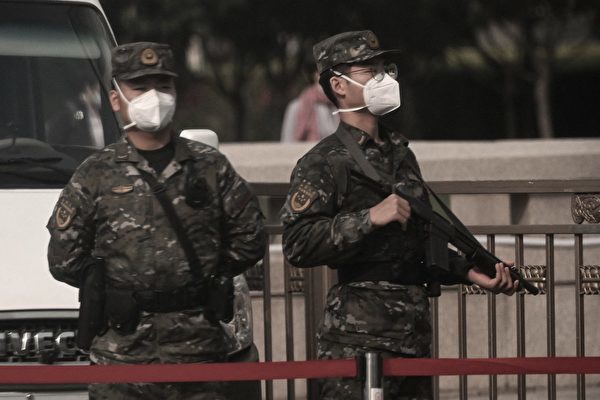
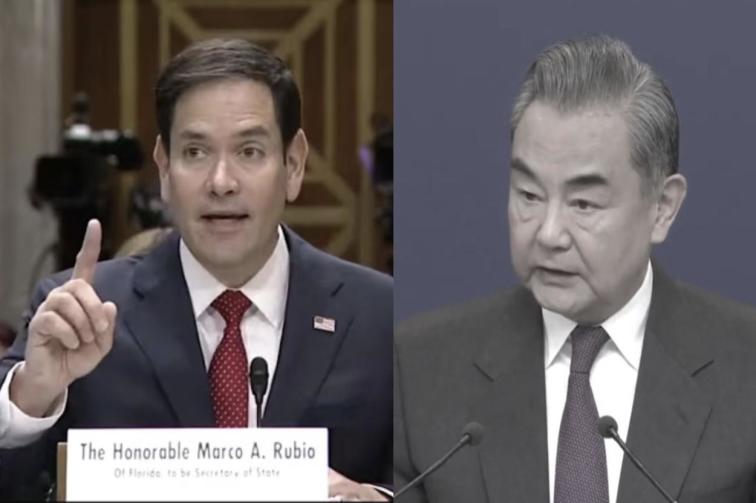
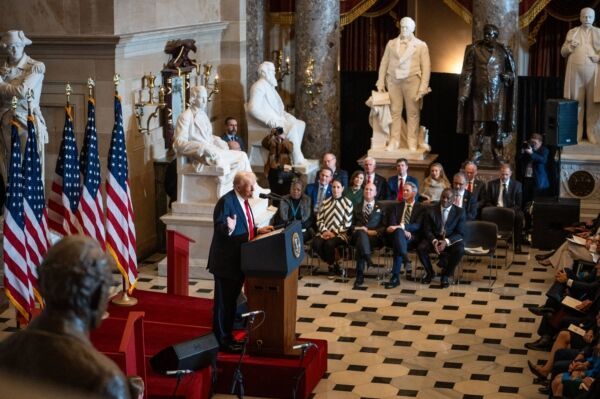
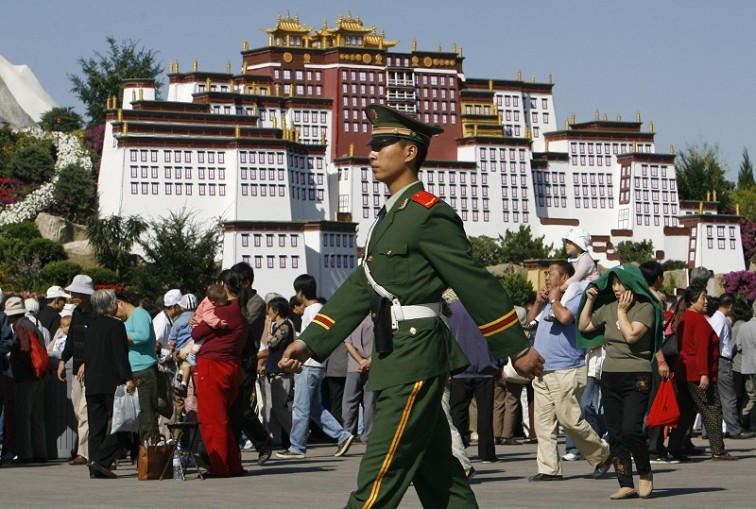
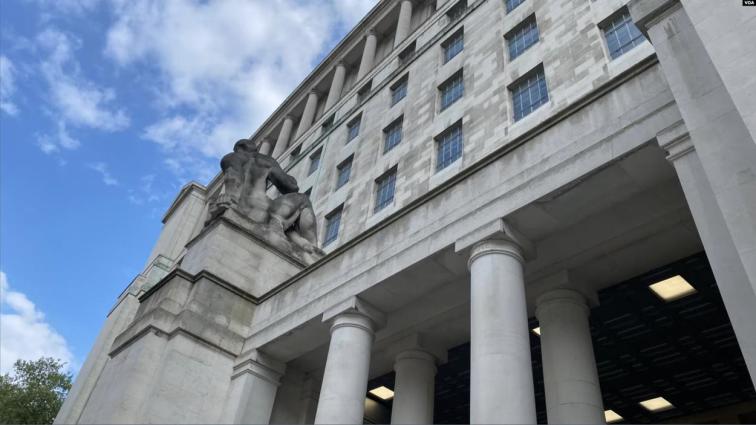



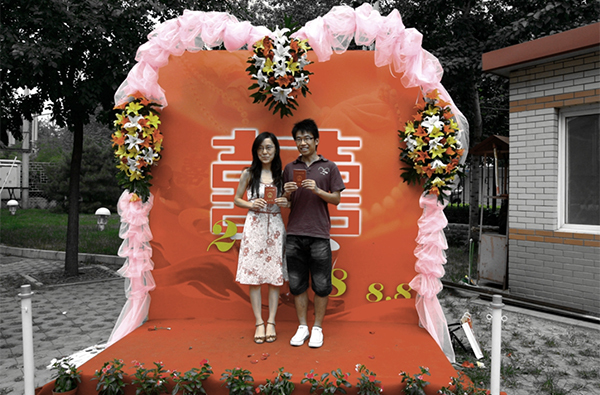

News magazine bootstrap themes!
I like this themes, fast loading and look profesional
Thank you Carlos!
You're welcome!
Please support me with give positive rating!
Yes Sure!